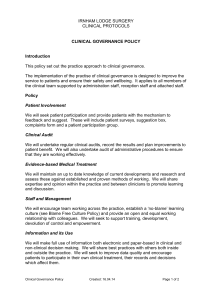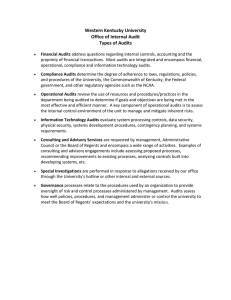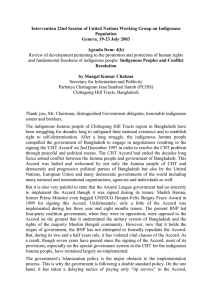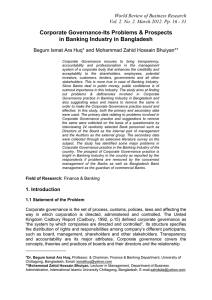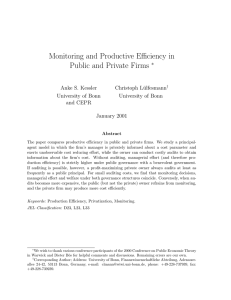Holding corporations accountable for labour standards and human rights? Plaza
advertisement
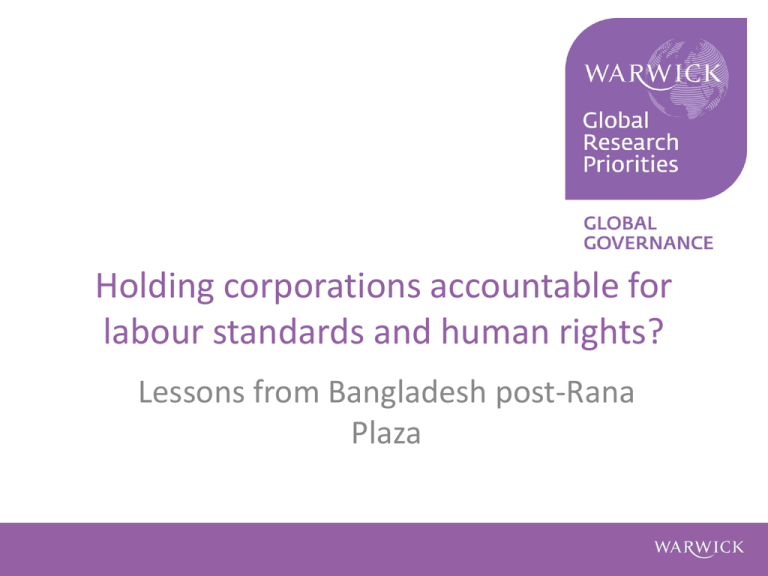
Holding corporations accountable for labour standards and human rights? Lessons from Bangladesh post-Rana Plaza Supply chain challenges • • • • • Fragmentation and outsourcing Codes of conduct/IFAs since the 1990s Too much emphasis on audits Failure to address underlying root causes Lack of enforcement – companies have little leverage & separation of CSR and procurement functions Bangladesh Accord on Fire and Building Safety • • • • • Agreement between 180+ brands and unions Commitment to maintain purchasing for 5 years Collective approach to auditing Annual contribution of up to $500,000 Legally enforceable in the home country of the signatory companies • Worker involvement and elected Health & Safety committees De-facto authority to withdraw production A model for global governance? • A sector-wide approach to address a systemic problem • Labour-brand co-governance • Pooling of resources: avoids costly replication – Consolidating codes, sharing audits – Highly specialized audits with follow-up on remediation • Pooling of sanctioning capacity Challenges ahead • Imposition of governance on local employers • Building capacity / not “quick fixes” – Eg. complaints mechanism • Hostility towards elected worker participation • Requires brands to rethink supply chain practices • Hidden sub-contracting factories • Beyond the 5-year horizon? Can the model be replicated? • Imposition of governance may be difficult in other contexts – Ex. Vietnam, Myanmar, Cambodia etc • Need to focus on capacity building, not just collective auditing of the problem – Role of ILO? • Co-existence of Accord & Alliance suggests that not everyone is ready to work together

